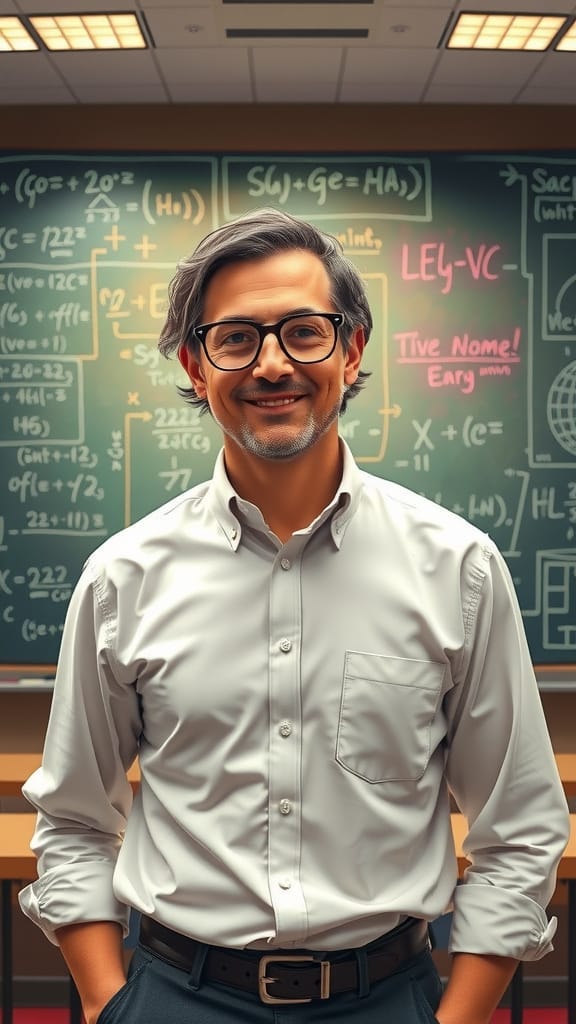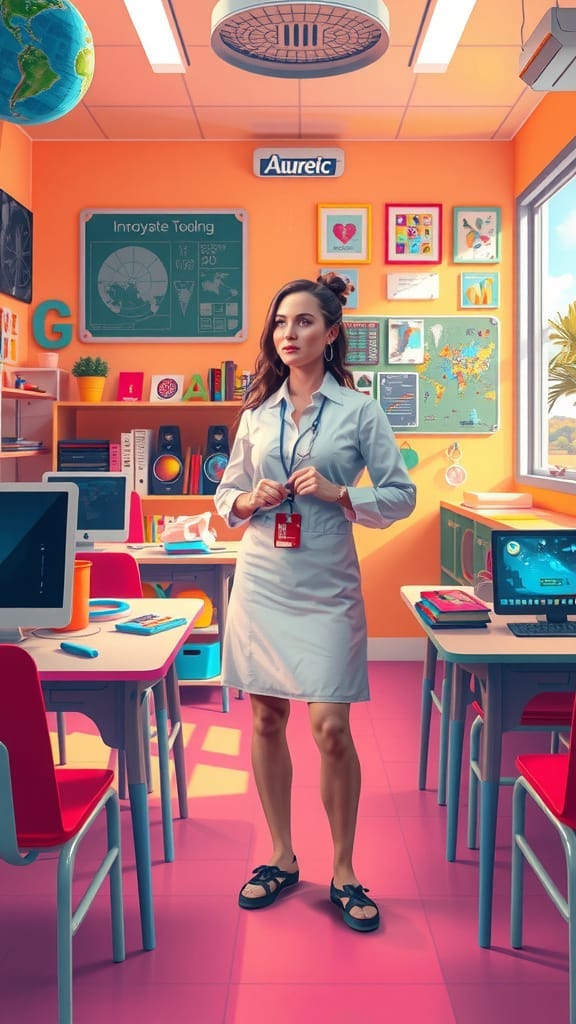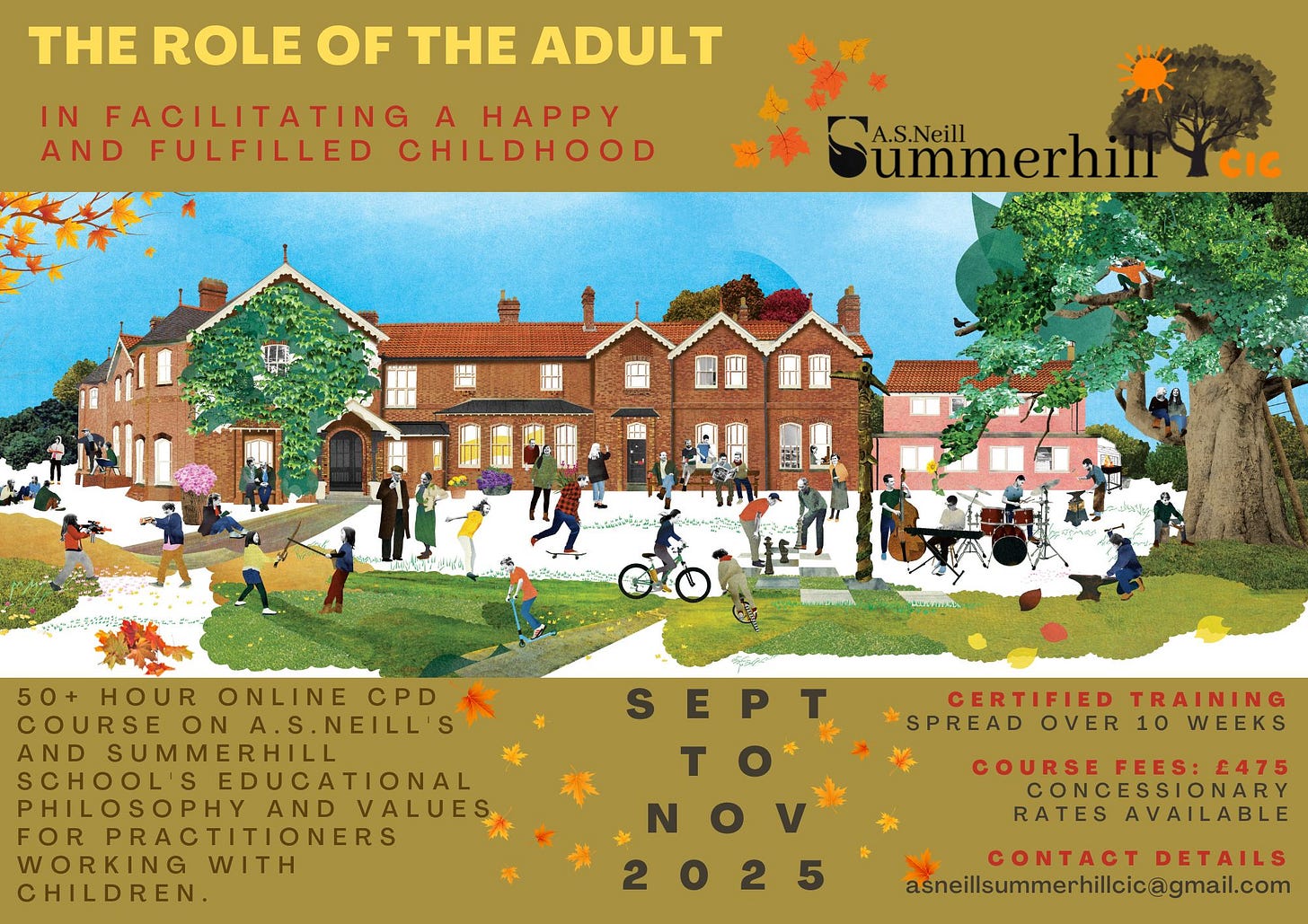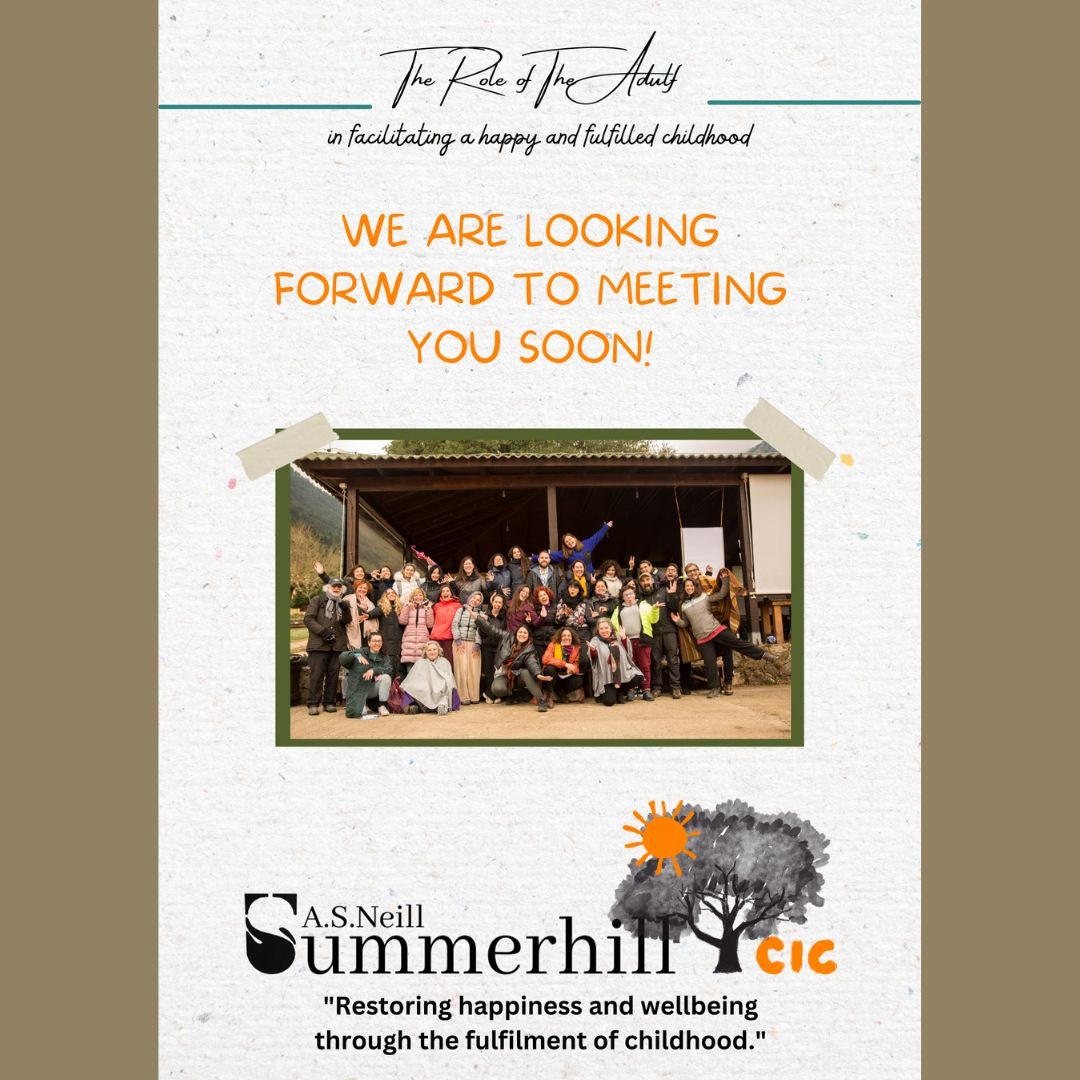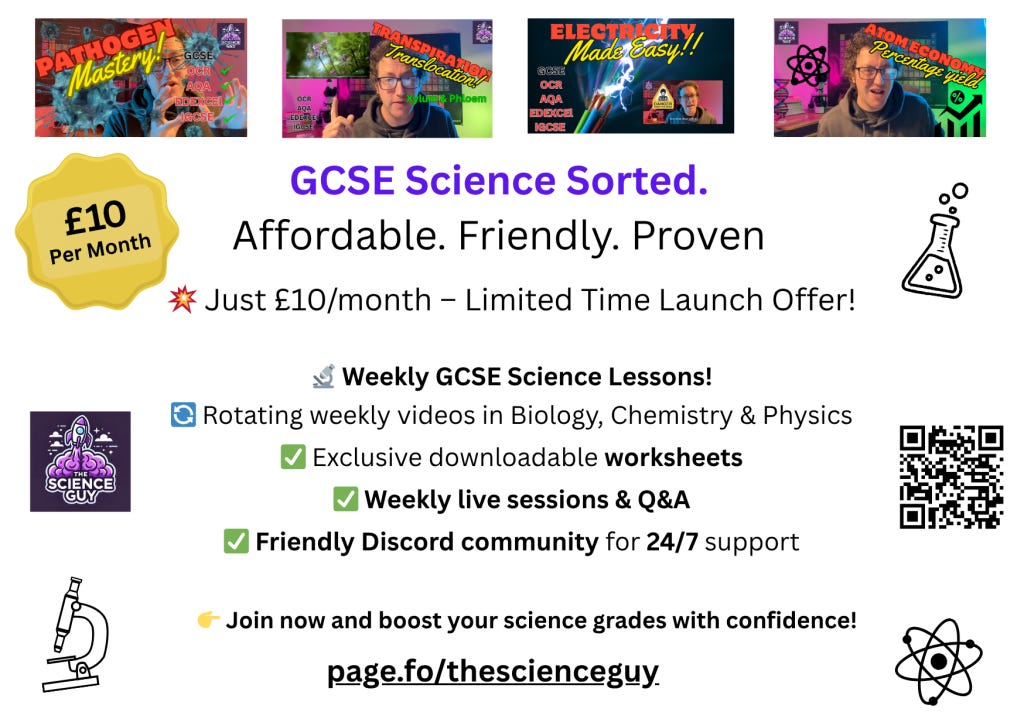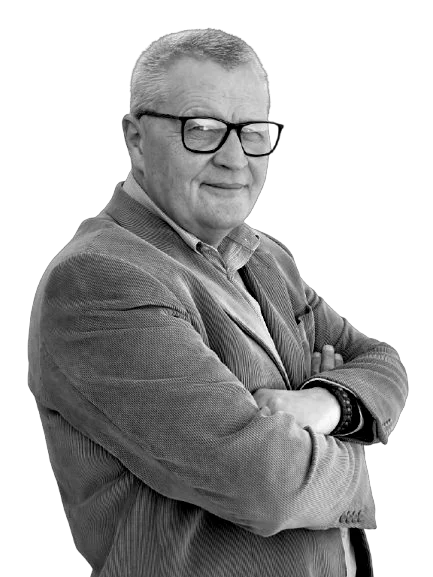Beyond the Bell Curve: Why We Must Become Architects of the Future, Not Curators of the Past
If you're like me, you've probably stood at the front of a classroom, physical or virtual and wondered: "Why do we do it this way?" Why is the lecture format so persistent? Why do we still measure success with standardised tests that feel like relics from another era? We inherit systems, and in education, those systems carry the weight of a century of history.
This is the journey that fuels The Modern Educator, a space built on the belief that to truly move forward, we must first understand where we've been. Because without a firm grasp of the foundations, we can't possibly hope to build a better structure for the future.
The Ghosts in the Machine: Learning from Our Educational History
For generations, education was built on what we now call the "factory model." Its purpose was simple and vital for its time: to produce a literate, compliant, and skilled workforce for the industrial age. We lined students up, fed them information in batches, and measured their output with a one-size-fits-all approach. And for a long time, it worked.
But our world no longer runs on assembly lines. The problems we face today, from technological disruption to complex social challenges, demand a different kind of mind. The modern world needs critical thinkers, creative problem-solvers, and emotionally intelligent collaborators. So, the question isn't just how we got here, but whether the foundations we inherited can possibly support the building we need to construct now.
The New Blueprint: A Call to Action for the Modern Educator
This is where you, the modern educator, come in. Your role is no longer to simply be a conduit for information. You are an architect of learning. This new blueprint requires us to actively engage with three critical pillars:
Becoming Historians of Pedagogy: We must examine what worked in the past, not to repeat it, but to understand its essence. We can see how rote memorisation gave way to discovery learning, and how a teacher-centric classroom is evolving into a student-centred hub. This historical lens gives us the perspective to make informed choices, not just follow trends.
Uncovering Practical Strategies: This is the hands-on work. It's about moving beyond theory and finding real-world, actionable techniques that light up a student's mind. It's about trading passive listening for active engagement, and replacing one-way instruction with dynamic, collaborative exploration.
Embracing the Coaching Mindset: Perhaps the most transformative shift of all. A coach's job isn't to give all the answers; it's to ask the right questions. It's to empower students to find their own solutions, to build their confidence, and to develop resilience. This mindset moves us from being the "sage on the stage" to the "guide on the side," a truly powerful and sustainable role.
Shaping the Future, One Mind at a Time
The world is not waiting for education to catch up. The pace of change, driven by technology and global interconnectivity, is only accelerating. This isn't a challenge to be feared; it's an opportunity to be seized.
By understanding our past, embracing new strategies, and adopting a coaching mindset, we can equip the next generation not just with knowledge, but with the curiosity, critical thinking, and confidence to thrive in a world we can't even fully imagine yet. We are not just teaching subjects; we are shaping the future itself.
I'm thrilled to have you join me on this journey, one where we'll delve into the rich tapestry of educational history, uncover practical teaching strategies, and navigate the transformative world of coaching. Let's do this together.
Teach Differently: 3 Strategies for the Modern Educator
It's exciting to see a shift in education. The traditional classroom, with its rows of desks and lecture-driven format, served its purpose for a time. But in an ever-changing world, we're discovering that true learning happens when students are not just passive recipients of information, but active participants in their own education.
Pioneering educators today are moving beyond the old model, not for the sake of novelty, but to better equip students with the skills they truly need to thrive. These aren't complex, tech-heavy overhauls, but practical, powerful strategies that redefine the student-teacher relationship and put curiosity back at the centre of the classroom.
Here are three practical teaching strategies that are proving to be game-changers in modern education.
1. Project-Based Learning (PBL): The Classroom Becomes the Real World
Instead of just lecturing on the principles of urban planning, a pioneering teacher gives their students a challenge: "Design a sustainable public park for our community." This is the heart of Project-Based Learning.
PBL moves beyond the "dessert project", the quick activity you do after a unit is over, and makes the project the entire meal. Students spend an extended period of time investigating a real-world problem, from researching local plant life to calculating construction budgets and presenting their final design to a panel of community members.
This method is powerful because it seamlessly integrates multiple subjects, from science and math to communication and art. It shifts the learning from passive knowledge acquisition to active creation, fostering critical thinking, collaboration, and a deep sense of purpose. It teaches students not just to know facts, but to apply them to solve real problems.
2. Gamification: The Power of Play and Progress
If you've ever seen a student obsessively trying to "level up" in a video game, you've seen the power of gamification. This strategy takes elements from game design, like points, badges, leaderboards, and narratives and applies them to the classroom to increase engagement and motivation.
This isn't about simply playing games in class; it's about redesigning the learning experience itself to feel like a meaningful challenge. Imagine a history class where students are "historians" on a mission to solve an ancient mystery, with each unit unlocking a new "level" of knowledge. Or a language class where students earn "experience points" for practising vocabulary, which they can exchange for a "bonus" day of conversation practice with a native speaker.
Gamification taps into our intrinsic desire for progress and achievement. It provides immediate feedback, normalises the idea of "failing forward," and encourages a healthy competitive spirit, making learning feel less like a chore and more like an exciting adventure.
3. Inquiry-Based Learning: The Student as the Scientist
For a long time, the teacher's role was to provide the answers. But what if the most important thing we can do is teach students how to ask the right questions?
Inquiry-Based Learning turns the traditional model on its head. Instead of starting with a lecture, the lesson begins with a question or a perplexing phenomenon. Students, acting as scientists or detectives, are then guided to formulate their own hypotheses, design their own investigations, and construct their own knowledge through exploration and research.
For example, instead of being told why plants need light, students might be given a variety of plants and placed in different conditions to discover the answer for themselves. The educator's role shifts from being a knowledge-giver to a facilitator of curiosity. This method cultivates a deep, lasting understanding of concepts, hones problem-solving skills, and, most importantly, ignites a lifelong love of learning and discovery.
These three strategies are more than just new teaching methods; they are a blueprint for a future where education is defined by empowerment, purpose, and engagement. They offer us a path to move beyond the bell curve and start truly shaping the architects of tomorrow.
Recommended Resource for Science Education Tutoring Online:
Need a Coach? Here’s Steve, a Great Coach and a Good Friend:
Building a Community - Your Voice Matters
This newsletter is more than just a one-way street. It's a community where we can learn from each other, share our experiences, and support one another on our educational journeys. I encourage you to engage with the content, share your thoughts and questions, and connect with fellow readers.
Message Dominus Owen Markham
I believe that education is a lifelong pursuit, a continuous process of growth and discovery. Together, we can create a more engaging, equitable, and empowering learning experience for all.
Final Thoughts
Thank you for joining me on this exciting adventure. I'm eager to explore the world of education and coaching with you. Let's embark on this journey together, embracing the past, navigating the present, and shaping the future of learning.
Until next time, keep learning, keep growing, and keep inspiring!




